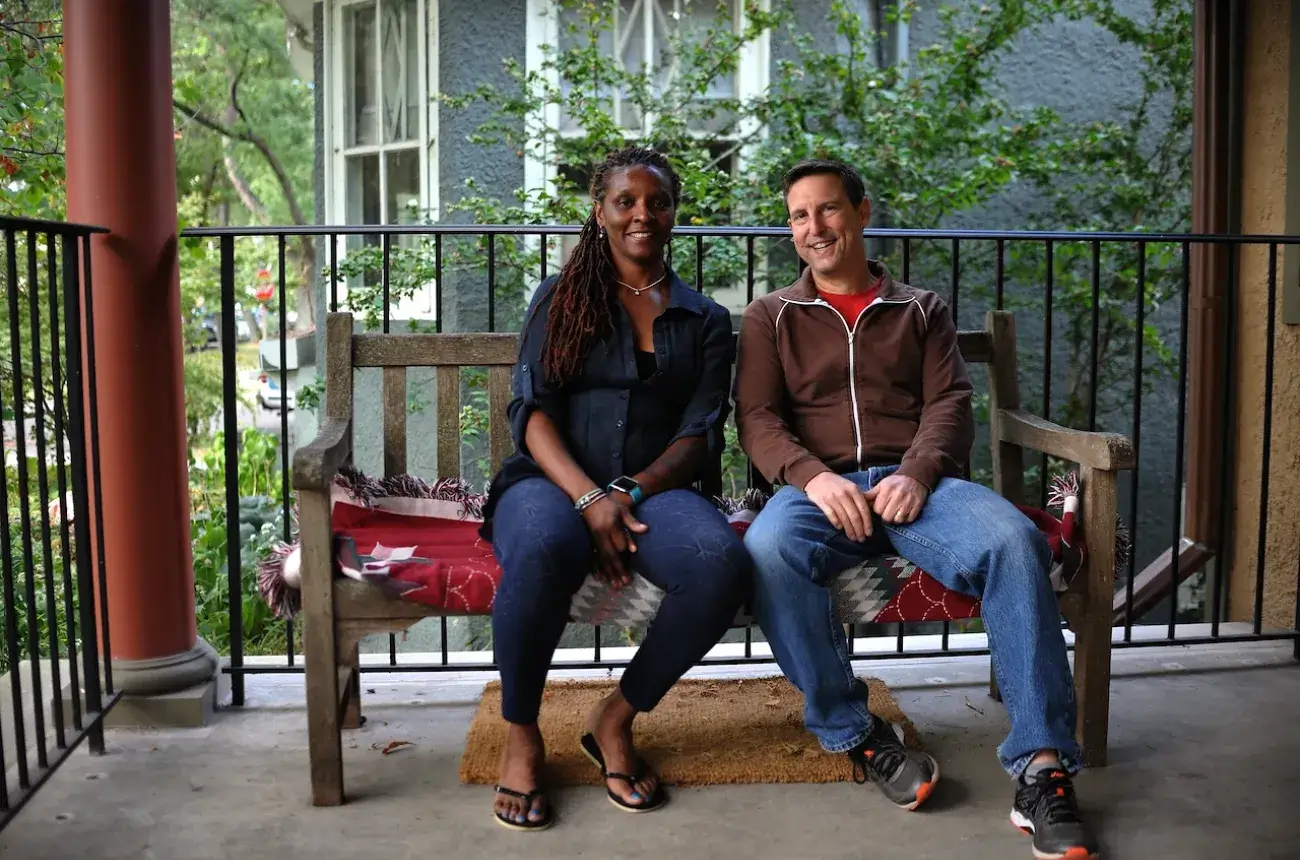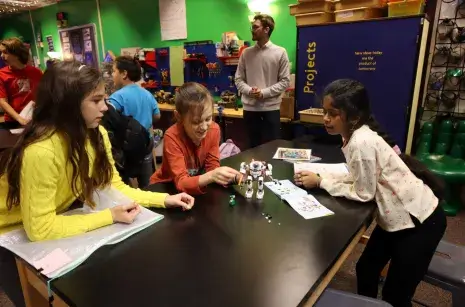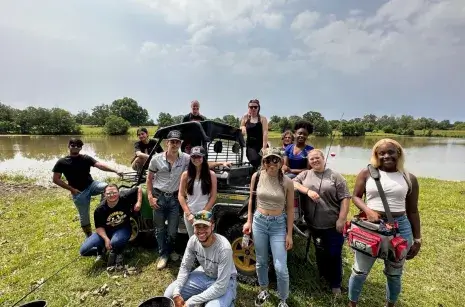Case study
The Folded Map Project in Chicago, Illinois

Linking Neighborhoods through Art
Chicago is one of the most segregated cities in the United States. A century’s worth of policies have separated Chicagoans by race and class. The Folded Map Project shows how the arts can be used to help people connect across these barriers and expand people’s social networks in the process.
Artist Tonika Lewis-Johnson created the Folded Map Project to help Chicagoans visualize and interrogate the city’s segregation. The project features photos of corresponding addresses or “map twins” that lie on the North and South Side of Chicago’s grid layout. Someone at 1000 South Main Street, for example, is paired with residents at 1000 North Main Street. With funding from the city government, Lewis-Johnson also created an action kit that urges participants to run errands, go on a walk, or have a meal in their “twin” neighborhood. This experience helps Chicago residents understand racial and economic inequities and break down preconceived notions of different parts of the city.
In addition to sparking these reflections, the Folded Map Project provides an opportunity for Chicagoans to connect across differences. Lewis-Johnson found many of the residents at the addresses she photographed were interested in learning more about their map twin. Her project facilitated conversations between wealthier North Side residents with less affluent neighbors from the South Side. Many of these discussions have resulted in sustained relationships developing between Chicagoans who otherwise would not have had the chance to meaningfully interact.
Art projects like the Folded Map are effective avenues for fostering economic connectedness because they directly tackle the barriers that normally keep people apart. Many people want to talk with others who do not share their life experiences or perspectives, but it can be intimidating and challenging to do so. The Folded Map Project in Chicago illustrates how the arts provide a safe outlet where people can engage with each other, question their own preconceptions, and discover their similarities in the process.
Learn more about the Folded Map Project.

